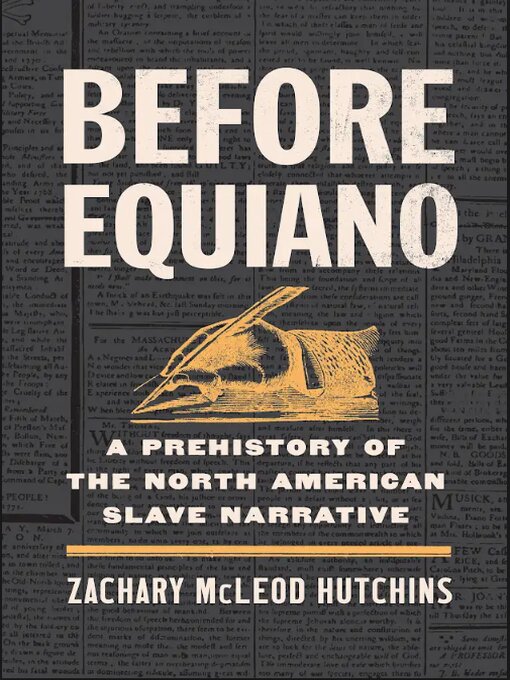- All Magazines
- Popular Magazines: Always Available
- Cooking and Food Magazines
- Craft Magazines
- News and Politics
- Always Available Popular Magazines
- See all
Before Equiano
A Prehistory of the North American Slave Narrative /
-
Description
-
Details

Kindle Book
- Release date: October 10, 2024
OverDrive Read
- Release date: October 10, 2024
Open EPUB ebook
- File size: 17546 KB
- Release date: October 10, 2024
Formats
Kindle Book
OverDrive Read
Open EPUB ebook
subjects
Languages
English

-
Details
Publisher:
The University of North Carolina Press
Kindle Book
Release date: October 10, 2024
OverDrive Read
Release date: October 10, 2024
Open EPUB ebook
File size: 17546 KB
Release date: October 10, 2024
-
Creators
- Zachary McLeod Hutchins - Author
-
Formats
Kindle Book
OverDrive Read
Open EPUB ebook
-
Languages
English
Loading
Why is availability limited?
×Availability can change throughout the month based on the library's budget. You can still place a hold on the title, and your hold will be automatically filled as soon as the title is available again.
The Kindle Book format for this title is not supported on:
×Read-along ebook
×The OverDrive Read format of this ebook has professional narration that plays while you read in your browser. Learn more here.
